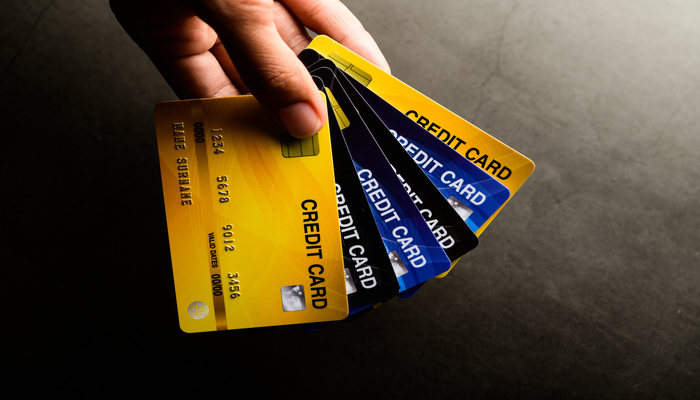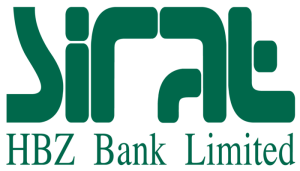ADVERTISEMENT
Unsecured loans provide a flexible borrowing option without the need for collateral, making them accessible to individuals who may not have assets to offer. These loans rely solely on your creditworthiness, allowing you to secure funds for personal or business needs.
However, with this type of loan, the increased risk for lenders means higher interest rates and more stringent approval criteria. It’s essential to fully understand the terms and conditions before making a commitment, ensuring that this option aligns with your financial objectives.
ADVERTISEMENT
If you’re considering this financial route, it’s important to carefully evaluate your options and understand the best approach for your situation. Continue reading to explore different types of loans and how they can support your financial goals.
Understanding Unsecured Loans
Unsecured loans are a type of credit that does not require the borrower to pledge any collateral, making them a viable option for individuals or businesses that may not have physical assets. In the event of default, the lender cannot seize any property, which distinguishes unsecured loans from secured ones.
ADVERTISEMENT
However, the increased risk to the lender typically results in higher interest rates compared to secured loans, and the approval process often hinges on the borrower’s creditworthiness.
How Do Unsecured Loans Work?
When applying for unsecured loans, the primary factor lenders consider is the borrower’s credit history and financial stability. Since no collateral is involved, the lender must rely on your ability to repay the loan based on your credit score, income, and existing debt.
This makes unsecured loans more accessible but also more expensive due to the increased risk for lenders. Borrowers with strong credit profiles tend to receive more favorable terms, while those with weaker credit might face higher rates or stricter loan conditions.
Advantages and Disadvantages of Unsecured Loans
Before committing to any form of credit, it’s crucial to assess the pros and cons of unsecured loans to ensure they align with your financial goals.
Advantages of Unsecured Loans
- No Collateral Required: Borrowers are not at risk of losing personal assets in case of default;
- Quicker Application Process: Without the need to appraise assets, the loan approval process is typically faster;
- Flexible Use: This type of loan an be used for a variety of purposes, from debt consolidation to financing personal or business needs.
Disadvantages of Unsecured Loans
- Higher Interest Rates: Due to the lack of collateral, unsecured loans often come with higher interest rates compared to secured loans;
- Stricter Credit Requirements: Lenders place more emphasis on your credit score and financial history, making approval more challenging for those with lower credit;
- Potential for Higher Fees: Additional costs, such as late payment fees, can add up, increasing the total repayment amount.
Types of Unsecured Loans
There are various types of unsecured loans available, each designed to cater to different financial needs. Knowing the specific features of each can help you make an informed choice.
Personal Loans
Personal loans are among the most common types of unsecured loans. They can be used for a wide range of purposes, from home improvement projects to medical expenses. Typically, personal loans come with fixed interest rates and repayment terms, making them predictable and easier to budget for.
Credit Cards
Credit cards are a popular form of revolving unsecured credit. They allow borrowers to spend up to a specified limit and repay the balance over time. While convenient, credit cards often carry high-interest rates, especially if you carry a balance from one month to the next.
Student Loans
Federal student loans are often unsecured, making them accessible to students without significant financial assets. These loans typically offer lower interest rates and more flexible repayment terms than private loans. However, private student loans, which may require a cosigner, often have higher interest rates and stricter requirements.
Unsecured Business Loans
Entrepreneurs and small business owners can access unsecured business loans to fund startup costs or expand operations. These loans do not require the business owner to put up personal assets, but they usually require a strong business plan, good credit, and sometimes a solid track record of business performance.
How to Qualify for an Unsecured Loan
Qualifying for an unsecured loan often requires demonstrating a solid credit profile and financial health. Here are steps to improve your chances:
Steps to Qualify
- Maintain a Strong Credit Score: Lenders rely heavily on your credit score to assess your risk level. Aim for a score above 650 to qualify for better rates;
- Prove Steady Income: Demonstrating a stable income reassures lenders that you have the ability to repay the loan;
- Minimize Existing Debt: Reducing your debt-to-income ratio makes you a less risky borrower;
- Shop Around for the Best Rates: Compare multiple lenders to find the best interest rates and loan terms for your financial situation.
Best Practices for Managing Unsecured Loans
After securing an unsecured loan, it’s essential to manage it responsibly to avoid financial strain.
Pay on Time
Make sure to pay your loan installments on time to avoid late fees and damage to your credit score. Consider setting up automatic payments to ensure you never miss a due date.
Avoid Borrowing More Than You Need
While unsecured loans can provide quick access to funds, it’s important to borrow only what you can afford to repay. Overborrowing can lead to increased debt and higher interest payments.
Understand the Terms and Conditions
Before signing any loan agreement, thoroughly read the terms and conditions. Make sure you understand the interest rates, fees, and penalties associated with the loan.
Maximizing the Benefits
Unsecured loans provide a versatile and accessible way to secure funds without the need for collateral, making them an appealing choice for a variety of financial needs.
Whether you’re consolidating debt, financing a major purchase, or growing your business, these loans offer flexibility that can be tailored to your situation.
By carefully assessing your financial position and understanding the terms, you can unlock the full potential of unsecured loans while avoiding unnecessary risks.
Choosing the right unsecured loan is crucial, as factors like interest rates and repayment terms can significantly impact your financial health.
Take the time to compare offers from different lenders and ensure that the loan aligns with your long-term goals. Borrowing responsibly and staying informed will help you make the most of this financial tool.
If you’re ready to explore how unsecured loans can support your financial journey, continue researching your options, and take the next steps toward achieving your financial objectives with confidence.





